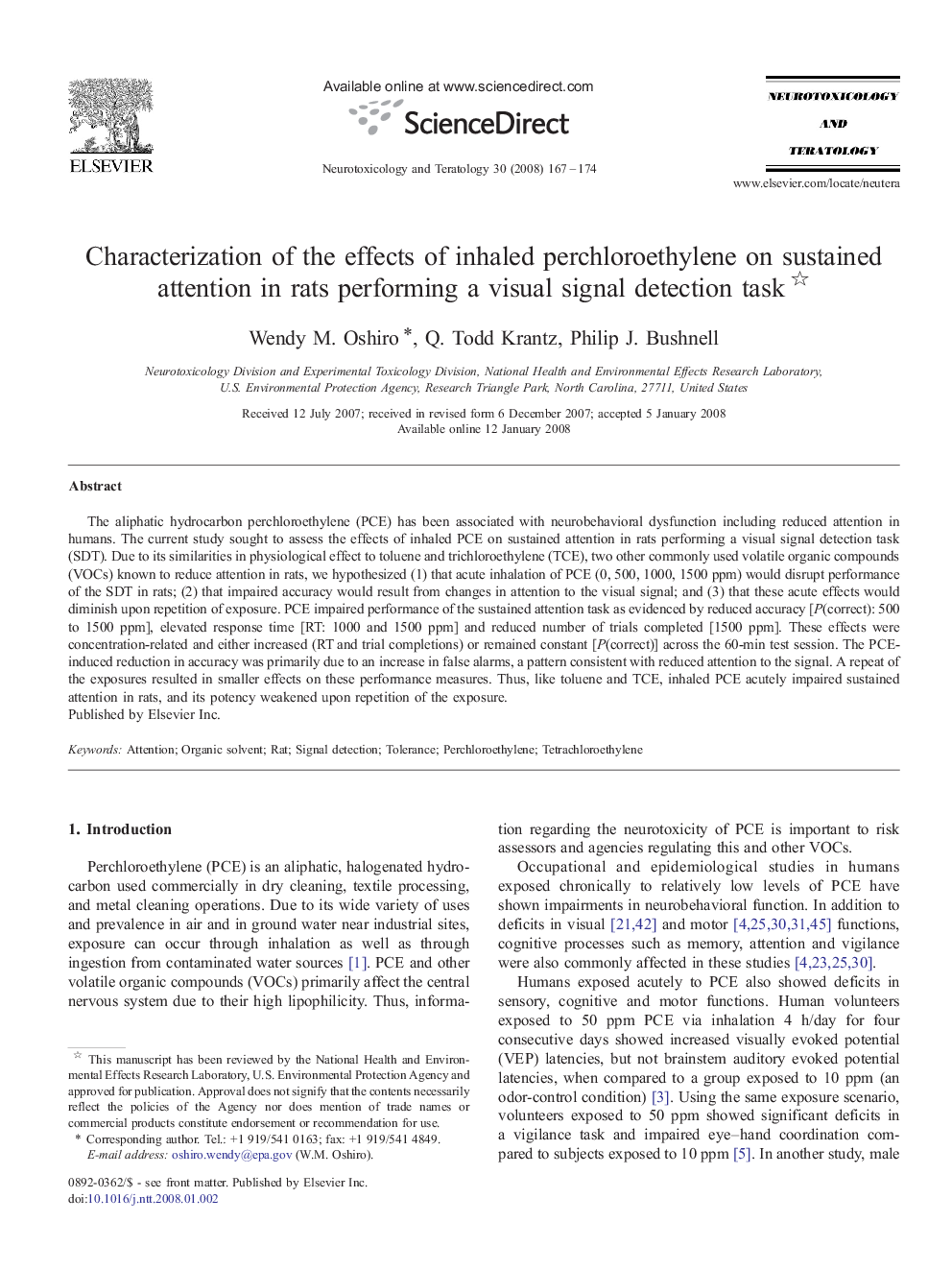| Article ID | Journal | Published Year | Pages | File Type |
|---|---|---|---|---|
| 2592072 | Neurotoxicology and Teratology | 2008 | 8 Pages |
The aliphatic hydrocarbon perchloroethylene (PCE) has been associated with neurobehavioral dysfunction including reduced attention in humans. The current study sought to assess the effects of inhaled PCE on sustained attention in rats performing a visual signal detection task (SDT). Due to its similarities in physiological effect to toluene and trichloroethylene (TCE), two other commonly used volatile organic compounds (VOCs) known to reduce attention in rats, we hypothesized (1) that acute inhalation of PCE (0, 500, 1000, 1500 ppm) would disrupt performance of the SDT in rats; (2) that impaired accuracy would result from changes in attention to the visual signal; and (3) that these acute effects would diminish upon repetition of exposure. PCE impaired performance of the sustained attention task as evidenced by reduced accuracy [P(correct): 500 to 1500 ppm], elevated response time [RT: 1000 and 1500 ppm] and reduced number of trials completed [1500 ppm]. These effects were concentration-related and either increased (RT and trial completions) or remained constant [P(correct)] across the 60-min test session. The PCE-induced reduction in accuracy was primarily due to an increase in false alarms, a pattern consistent with reduced attention to the signal. A repeat of the exposures resulted in smaller effects on these performance measures. Thus, like toluene and TCE, inhaled PCE acutely impaired sustained attention in rats, and its potency weakened upon repetition of the exposure.
